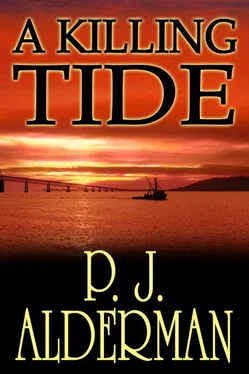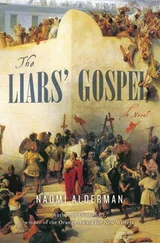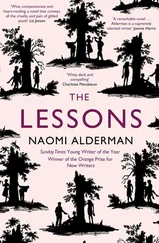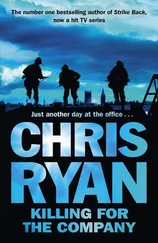Forbes was smiling fondly, his expression distant. "She's a pistol, though, isn't she?"
"Yes, sir," Michael's reply was a little too heartfelt.
"The irony is, folks around here thought Kaz was the most gifted female skipper to ever work the North Coast. She has this eerie sixth sense about the river bar. The fishermen used to just follow her across, knowing that if they did what she did, they'd make it home to their wives." Forbes watched the boats pulling away from the docks for a long moment, then sighed. "Fishermen are a superstitious lot—after being gone for so long, she'll have to prove herself all over again."
He turned his shrewd gaze on Michael. "Heard you went in after her last night before you had backup in place."
Small towns. Michael wondered who had talked. He flipped his notebook shut and slipped it into his pocket. "I assessed the situation, made the decision to go in."
"I'd hate to think that business in Boston is still affecting your judgment."
Michael's voice turned cool. "You knew my reputation. It's a little late to be having second thoughts."
"True enough." Forbes reached over to pat Zeke's head. The dog endured it with one slightly curled lip. "You know, people move out here for a number of reasons. Some of them just can't handle being in the city any more—the peace and quiet is easier on their nerves. Some simply don't fit in anywhere else, and the folks out here are more forgiving of that than your average urban dweller." He paused. "I'm willing to bet you came out here for similar reasons."
Michael stared back, his expression impassive. "Was there anything else you wanted, sir?"
Forbes chuckled. "I also heard you are a real hardass." When Michael didn't reply, he shrugged, then continued, "There've been a few run-ins between Gary and Jim Sykes in the past. Jim didn't grow up with the same advantages as the Jorgensens. His home life—excuse my French—sucked. Drunk mother, abusive father. More often than not, the only good meal Jim got was at school. But he's worked hard, risen above all that." Forbes paused to draw on his cigarette. "A couple years' back, Jim broke up a burglary ring here on the North Coast that'd been driving us all nuts. Men were afraid to go to work and leave their wives, for fear the women would come home from the grocery store and walk in on a robbery in progress. Jim changed all that, and folks around here are grateful.
"I guess what I'm trying to say, Michael, is that if you do right by us on this case, the townsfolk aren't going to forget it. They'll be on your side from here on out. We stick by our own, no matter what."
"Yes, sir." Forbes was letting him know they'd overlook his checkered past, he realized, his mouth twisting. Just like they had with Sykes.
"Well." Forbes brushed his hand across the edge of the Anna Marie's scorched railing, then rubbed the soot between his fingers. "I'm sure you're busy, so I'll be on my way."
"Thanks for dropping by, sir."
"Somehow, I doubt you were all that happy to see me, son," Forbes observed, his tone wry. He turned to go, then stopped and looked back. "Michael."
"Yes, sir."
"I don't think I have to tell you how much I appreciate having your expertise on this. I know you'll do everything you can to solve the crime fairly and impartially, and to bring the right person to justice."
Michael nodded. He hadn't missed the tension among the cops last night, with two of them flanking Kaz and sending a not-so-subtle message to the police chief that they wouldn't tolerate any subjectivity on his part. And Michael had also been neatly warned—no outsider would be allowed to run roughshod over one of their own.
But unless he was mistaken about the intent of this little visit, the mayor was willing to use him—the newcomer—to ensure that those friendships and loyalties weren't a hindrance to the investigation. He could've told Forbes not to worry. No one ever got in the way of his investigation—at least, not for long.
"Well, then," Forbes said, nodding. "I'll leave you to it."
Michael knelt and rubbed Zeke's chest while he watched the mayor walk away. He had a confusing fire scene, a beloved town daughter who was up to her neck in intrigue, and a boss who didn't trust the motives of his own police force.
"Well, well, well," he murmured. "This town is looking less quaint all the time, huh, boy?"
"Raaaoow."
~~~~
Chapter 5
Kaz lunged up in bed, clawing her way out of the nightmare and gasping for air. She scrambled into a crouch against the headboard, the harsh rasp of her rapid breathing disturbing the early morning quiet. Shuddering, she stared at the familiar furniture and knickknacks of her childhood bedroom, barely registering them.
It was just the dream. She repeated the phrase over and over inside her head, like a mantra. She lifted a shaky hand to shove damp hair back from her face and made herself look again at each of the sturdy pieces of walnut furniture her grandfather had built for her, to take in the pale morning light filtering through the sheer lace curtains of her south-facing window.
The nightmare had been occurring more often since she'd come home, and it didn't take a rocket scientist to figure out what had triggered it this time. Years of hearing the local legends about ghouls hunting for the skulls of drowned sailors, followed by the shipwreck when she was a teenager, and now last night's disaster—she would've been surprised if she hadn't had the dream.
Usually, the ghoul turned out to be whoever was hassling her at the moment—in this case, Chapman.
She pulled the comforter around her and climbed stiffly from bed. Out of habit, she walked over to the window to gauge the weather. The skies were gloomy, the clouds gray and threatening to drop their moisture. But the wind was light, and for now, the rain held off. In the distance, she could actually see patches of weak sunlight over Young's Bay. She hugged the quilt close to ward off the chill seeping through the windowpane. Was Gary out there somewhere, standing at someone else's window, gauging the weather just like she was? Was he all right? Or was he running from a killer?
She wouldn't let herself even think about the other possibility—that somehow, he was involved. Not Gary. Not the quiet, gentle kid she'd grown up with. Not even the hardened, disillusioned man—the stranger—he'd become. She refused to believe it.
After Chapman had dropped her off around 3 A.M. and confiscated her clothes, she'd called every friend of Gary's she could think of, waking them up, which hadn't made her popular. No one knew where he was. Or, at least, no one was admitting they knew where he was. She'd checked his bedroom, but he hadn't slept in his bed. And his camping gear and Army revolver were gone. The missing revolver had her the most worried—Gary never carried his gun.
Knowing there was nothing else she could do before first light, she'd pulled on one of Gary's Seahawks jerseys, hugging it around her as she'd dropped off into a fitful doze—only to awaken from the nightmare less than an hour later, feeling as if she were drowning.
She shook herself out of her reverie. She should be out looking for Gary—not dreaming about a past that she couldn't change. Or about a burned-out arson investigator, for that matter.
Michael Chapman thought Gary had run, and that by running, Gary had as much as admitted he was guilty of arson and murder. But Gary had other reasons to run.
For twenty agonizing days during the Iraq war, she and the rest of Astoria had watched and waited for the Iraqis to release Gary and four other POWs after his unit had been captured during a covert op. He'd finally come home, quiet and withdrawn; the rest of his unit hadn't made it out alive. He'd never talked about what he'd endured, but the experience had changed him into a remote stranger who had trouble sleeping through the night, who no longer spent any length of time confined inside.
Читать дальше












